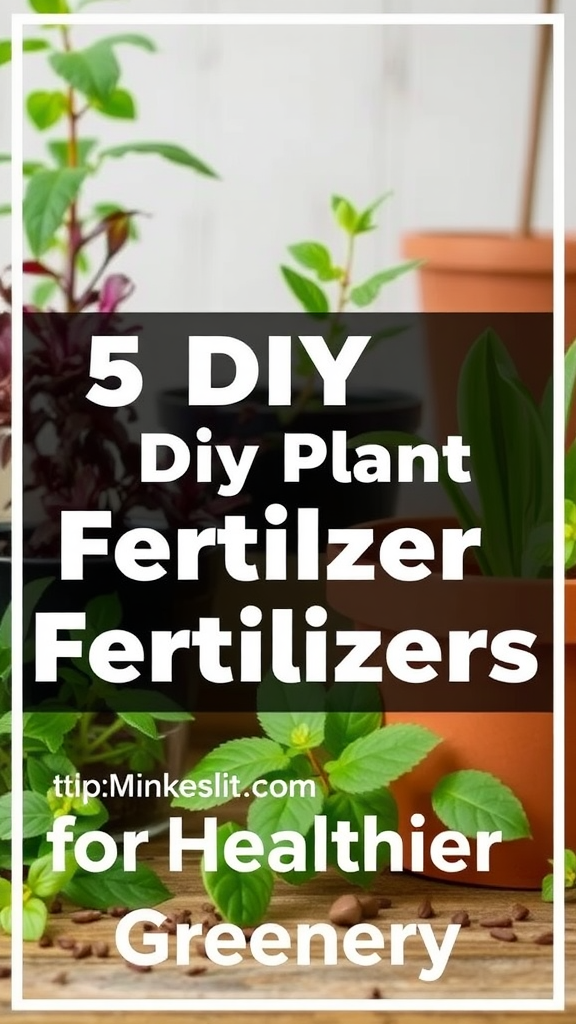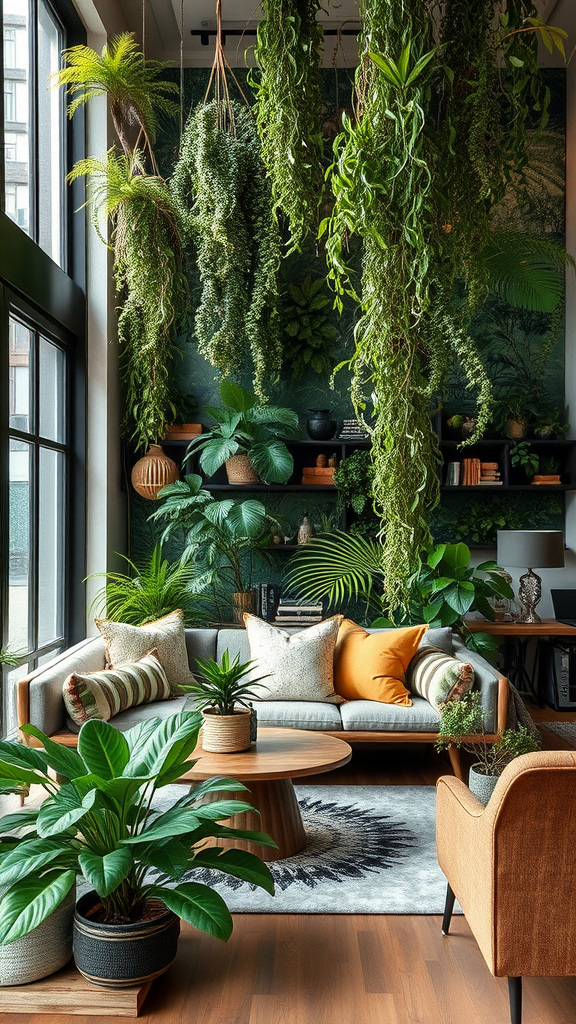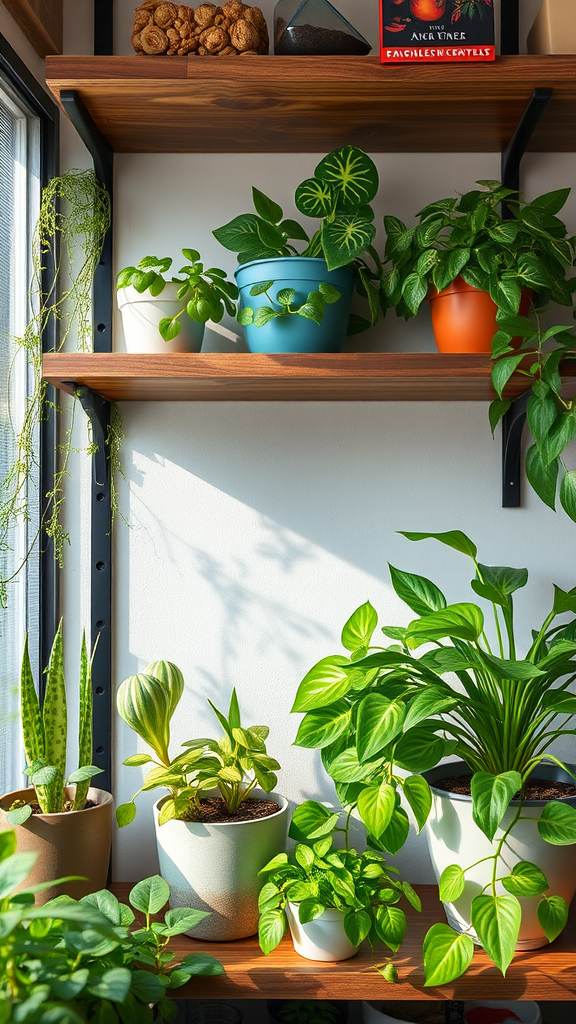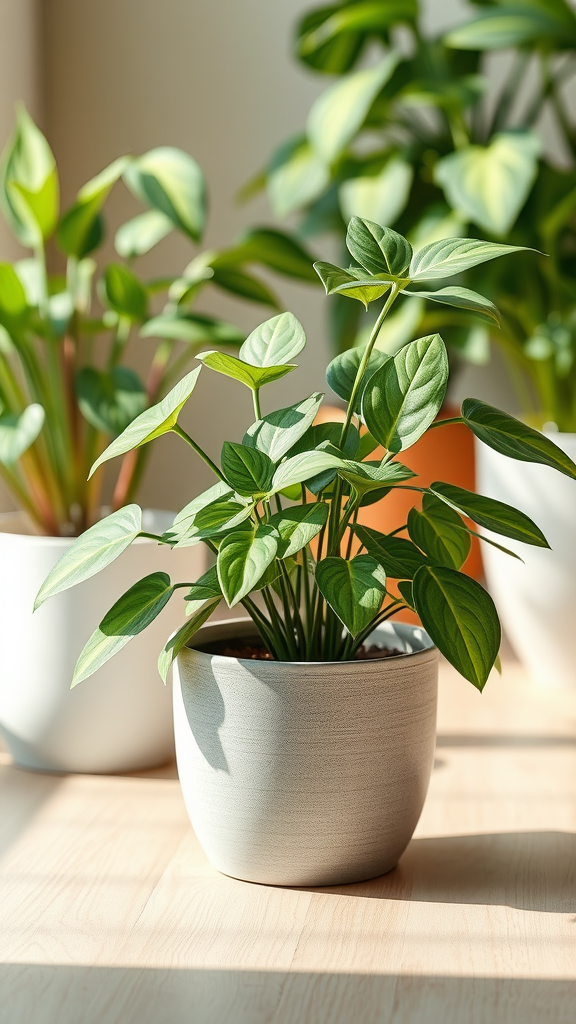Exploring 5 DIY Plant Fertilizers for Healthier Greenery
Are you looking to boost the health of your plants without spending a fortune on commercial fertilizers? You’re in luck! By using simple household items, you can create your own DIY plant fertilizers that promote lush greenery and strong growth. Here are five effective options you can make at home.
Banana Peel Fertilizer
Banana peels are not just great for composting; they are also packed with potassium, which is essential for flowering and fruiting plants. Using banana peels in your fertilizer can improve the overall health of your plants.
How to Use:
- Cut banana peels into small pieces.
- Bury the pieces in the soil around your plants.
- Alternatively, soak banana peels in water for 48 hours and use the water to water your plants.
Epsom Salt Solution
Epsom salt is rich in magnesium and sulfate, both of which are vital nutrients for plant growth. Magnesium helps with photosynthesis, making it great for leafy greens.
How to Use:
- Dissolve 1 tablespoon of Epsom salt in a gallon of water.
- Water your plants with this solution once a month for best results.
Coffee Grounds Fertilizer
If you love your morning coffee, don’t throw away those grounds! Coffee grounds are an excellent source of nitrogen, which helps plants grow strong and healthy. They also enhance soil texture and drainage.
How to Use:
- Sprinkle used coffee grounds directly onto the soil.
- Mix them into your compost pile to increase nitrogen levels.
Eggshell Fertilizer
Eggshells are a great source of calcium, which is crucial for preventing blossom end rot in tomatoes and peppers. By using eggshells, you can enrich the soil and strengthen your plants’ cell walls.
How to Use:
- Rinse and dry eggshells, then crush them into a fine powder.
- Sprinkle the powder on the soil or mix it into your compost.
Compost Tea
Compost tea is a nutrient-rich liquid made from steeping compost in water. This potent fertilizer helps increase beneficial microbes in your soil, promoting a healthy ecosystem for your plants.
How to Use:
- Fill a bucket with finished compost.
- Add water and let it steep for 24 to 48 hours.
- Strain the liquid and dilute it with water at a 1:1 ratio before applying it to your plants.
By using these five DIY plant fertilizers, you’ll find that nurturing your plants is not only cost-effective but also fun. With ingredients you already have at home, you can boost their nutrient intake and promote healthier greenery. Remember to test your plants’ response to each fertilizer and adjust accordingly; every plant has its own needs. Happy gardening!
The Benefits of Organic Gardening Techniques for Sustainable Growth
Engaging with nature has become increasingly important, and organic gardening techniques offer a sustainable approach for cultivating plants while nurturing the environment. By focusing on natural processes, these methods promote soil health, increase biodiversity, and lessen the impact of gardening on the planet.
One of the most significant advantages of organic gardening is its positive effect on soil health. When you avoid synthetic fertilizers and pesticides, you encourage a thriving ecosystem in the soil. Beneficial microorganisms, worms, and fungi work together to enhance soil fertility naturally. This results in a nutrient-rich environment that supports plant growth. You can achieve this by incorporating techniques, such as:
- **Composting:** By turning kitchen scraps and yard waste into compost, you create a valuable resource that enriches the soil.
- **Crop rotation:** Changing the types of plants grown in different areas of your garden each season helps prevent soil depletion and the spread of pests.
- **Cover cropping:** Planting cover crops during the off-season protects soil from erosion and adds organic matter back into the ground.
Another benefit of organic gardening practices is the enhancement of biodiversity. By creating a balanced ecosystem, you encourage different species—like insects, birds, and beneficial animals—to thrive. This diverse environment not only balances pest populations but also increases pollination rates. Planting a variety of flowers, shrubs, and vegetables can attract various pollinators, benefiting your garden immensely. Consider adding:
- **Native plants:** These attract local pollinators like bees and butterflies, which are essential for fruit and vegetable production.
- **Herbs:** Planting herbs can attract beneficial insects, such as ladybugs and lacewings, which prey on common pests.
- **Flowering plants:** Flowers provide a nectar source for pollinators, improving the overall productivity of your garden.
One cannot overlook the significance of sustainability in gardening. Eco-friendly practices help conserve water and reduce pollution. Organic techniques often emphasize natural pest control methods. This helps minimize the use of harmful chemicals that can leach into waterways and impact aquatic life. Some effective natural pest control options include:
- **Beneficial insects:** Introducing ladybugs or predatory wasps can keep harmful pests in check.
- **Essential oils:** Spraying plants with diluted neem oil or peppermint oil can deter unwanted insects.
- **Handpicking:** For larger pests, simply removing them by hand can be a straightforward and effective solution.
Moreover, organic gardening is cost-effective in the long run. While there might be an initial investment in organic seeds, soil amendments, and natural pest control methods, the results can lead to healthier plants that yield better crops. You’ll find you spend less on chemical inputs and can utilize home-made solutions, like compost and plant teas. Curbing your reliance on expensive fertilizers can greatly enhance your gardening budget.
Healthy plants from organic gardens are typically more resilient. Without the use of harsh chemicals, the plants strengthen their natural defenses against pests and diseases. This means you’re likely to face fewer pest issues and experience the joy of gardening without the stress of using dangerous substances. Additionally, healthier plants can produce more abundant and flavorful fruits and vegetables, contributing to your well-being and culinary experiences.
Engaging in organic gardening fosters a closer connection to nature. The tactile experience of working the soil, observing the plants, and welcoming wildlife into your garden offers countless mental health benefits. Spending time outdoors has been associated with lower stress levels, improved mood, and even increased physical activity. Getting involved in this sustainable practice not only serves our Earth but also nurtures personal well-being.
Incorporating organic gardening techniques into your practices offers numerous benefits for sustainable growth. From enriching soil health to promoting biodiversity and reducing environmental impact, these methods fundamentally align with a more eco-friendly lifestyle. By participating in this form of gardening, you will enjoy both the rewards of vibrant greenery and the satisfaction of fostering a healthier planet.
Conclusion
Creating a thriving garden is within your reach when you harness the power of DIY plant fertilizers. By using simple, natural ingredients, you not only nourish your plants but also promote healthier soil and a more sustainable environment. The five DIY fertilizers we’ve discussed—banana peels, coffee grounds, eggshells, Epsom salt, and compost tea—offer effective ways to enrich your greenery without relying on commercial products laden with chemicals.
Embracing organic gardening techniques enhances your gardening experience in many ways. Not only do you reduce your ecological footprint, but you also foster a thriving ecosystem that supports beneficial microorganisms and insects. This holistic approach ensures that your plants flourish naturally, making them more resilient against pests and diseases. As you integrate these simple fertilizers into your gardening routine, you’re actively participating in a larger movement toward sustainable and eco-friendly practices.
By adopting these practices, you’re not just improving your collection of plants—you’re contributing to a healthier planet. So whether you’re a seasoned gardener or just starting your journey, these DIY methods provide accessible ways to cultivate lush greenery. Remember, nurturing your garden is a rewarding process that can bring joy and satisfaction. With a little creativity and care, your greenery will flourish in ways you never imagined, allowing you to enjoy the fruits of your labor for years to come. Happy gardening!




